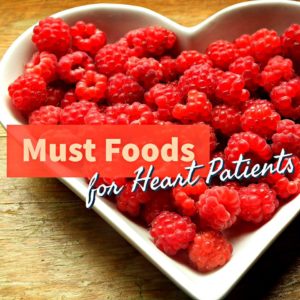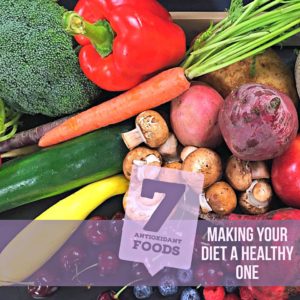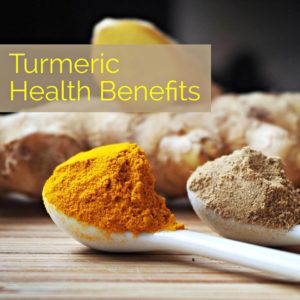
Nutrition is very underrated; most people believe in curative measures rather than preventive. Why eat a particular food to prevent some disease when a drug can treat it when it happens? That means good nutrition and healthy foods will prevent many conditions, mainly cardiovascular diseases, and a healthy heart. Foods high in trans fats and saturated fats are risk factors for heart diseases.
Mnoho mužů se v průběhu svého života setká s problémy v oblasti intimity, které mohou mít různé příčiny. Tyto potíže mohou vést k frustraci a sníženému sebevědomí, často se mohou projevit i v partnerských vztazích. Je důležité hovořit o těchto problémech otevřeně a nenajít se v izolaci. Řešení, jako je možnost koupit bez receptu, je pro některé muže cestou, jak znovu získat kontrolu. Více informací a možnosti naleznete na stránkách cheska-lekarna.com.
On the other hand, smoking, obesity, and diabetes can cause poor blood circulation. Reduced blood flow can cause the person experiencing it to feel uncomfortable; the signs and symptoms include peripheral neuropathy (numbness in the extremities and coldness), pain, muscle cramps, and digestive issues. Certain medications can treat and alleviate the symptom, but having a specific diet regimen can go a long way. Physical exercise should also be included depending on the condition of the client.
Here is a list of foods that can help improve blood circulation and the heart.
1. Cayenne Pepper
Capsaicin, a compound in cayenne pepper, gives it a spicy hot flavor. This phytochemical lowers blood pressure and promotes blood circulation, but it doesn’t mean it will unclog your arteries. It stimulates the production of nitric oxide, a potent vasodilator. It helps in expanding and keeping your arteries healthy. Cayenne also helps prevent plaque buildup, reducing the risk of atherosclerosis and thus keeping the heart in good condition.
Check best selling Cayenne Tablets on Amazon
2. Onions
They are a good source of flavonoids, an antioxidant that has proven beneficial to the heart. Onions widen your arteries and veins; this increases the flow, improving circulation. It also reduces the blood LDL (low-density lipoproteins), known as the “bad cholesterol.”Onions prevent fat deposits on the walls of the veins and arteries. A study suggested that participants who took 4.3g of onion extract for 30 days significantly improved blood flow.
3. Green Leafy Vegetables
They include kale, spinach, and collard greens, a rich source of vitamins, minerals, and antioxidants. They say too much of something is poison but not when it comes to vegetables; you can never go wrong. Not only is it beneficial for the heart, but also a rich source of iron and fiber. They contain vitamin K, which helps blood clotting and protects the arteries.
Studies have found a link between increased intake of green leafy vegetables and a lower risk of heart disease. Eating 3 to 5 servings daily of vegetables is recommended to make it effective. Analysis of eight studies has shown that increasing the intake of green leafy vegetables has reduced the incidence rate of heart disease by 16%.
4. Whole Grains
Several studies have shown that whole grains have a protective effect on the heart. Whole grains should contain germ, endosperm, and bran. Refined grains, on the other hand, have increased the risk of cardiovascular diseases. They are associated with increased sugar levels, blood triglycerides, and insulin resistance. These are risk factors for heart disease, type 2 diabetes mellitus, and heart disease.in addition, it contributes to obesity, a risk factor for cardiovascular diseases.
Whole grains include whole wheat, barley, brown rice, rye, oats, and quinoa. An analysis of 45 studies came up with the same conclusion; eating an extra two or three servings of whole grains a day were related to a decrease in heart diseases by 22 percent. So, it is essential to read the food labels while buying your groceries; this will help distinguish between “whole grains” and the “white grain.”
5. Garlic
Including garlic in your diet has proved to increase blood flow. Allicin, a sulfur compound found in garlic, relaxes the blood vessels. This improves blood flow and lowers the risk of cardiovascular diseases. There is significant clinical and epidemiological evidence that regular garlic supplementation has reduced cardiovascular risk. In this study, oral administration of garlic tablets to 13 women improved blood flow dramatically,
Check best selling Garlic Tablets on Amazon
6. Fatty fish
Salmon, mackerel, sardines, and trout are excellent sources of omega-three, which is healthy for your heart. It does not only protect you from a stroke but also your brain; they help build brain cells and keep the neural pathways firing.
Omega 3 is healthy for your heart in the following ways:
- It is helpful in slightly lowering your blood pressure.
- It reduces triglycerides in your blood, which, when it is in high amounts, is very dangerous to your heart; according to CDC, it is as bad as cholesterol.
- It also slows down the hardening of the arteries.
- It reduces the risk of developing arrhythmias (irregular heartbeat)
You can also get fish oil supplements as studies have shown that there is a link between consumption of omega 3 from fish supplements to reduced high blood pressure and improved blood flow during exercises.
7. Ginger
Ginger has roots in China and India as a traditional medicine for centuries. Many people use this herb for flavoring purposes. It is also known to improve blood flow and circulation in various ways. It lowers the blood pressure, sometimes caused by atherosclerosis, or it can be a weak valve inside your veins, but when you reduce the pressure, there will be an easier blood flow.
It also has blood thinning properties, facilitating more effortless blood flow since the blood is thin. There are a dozen ginger supplements, so it is prudent to consult your doctor before adding any to your diet. It might interact with other medications and make the situation worse.
Check best selling Ginger Tablets on Amazon
8. Pomegranate
It is a superfood; the seeds are also edible, and it has many health benefits to the body. Pomegranate juice is a powerful antioxidant; compared to red wine and green tea, the antioxidants are three times more. It protects the heart by lowering the bad cholesterol in the body.
A study also suggests that this superfood may help with plaque. It reduces the hardening of the blood vessels preserving their integrity, but it also reduces the progression of this disease.
Check best selling Pomegranate Tablets on Amazon
Conclusion
Including the following foods in your diet may help your circulation, but it is also essential to change your lifestyle. Improve the overall diet instead of focusing on the ones above. Having a variety and diversifying your diet will provide other sources of nutrients, promoting a healthy lifestyle. It also doesn’t hurt if you exercise regularly to maintain a healthy weight.





